
The Mid-Autumn Festival is celebrated on the 15th day of the eighth month of the lunar calendar. This year it falls on September 13. One of the most traditional ways of marking the occasion is eating mooncakes. But do you know what this round pastry hides inside?

This mooncake is filled with white lotus seed paste and salty egg yolk. /VCG Photo
They might all be round, but mooncakes come in different sizes and fillings. However, the most traditional version — and the most popular — is the white lotus paste with salty egg yolk.
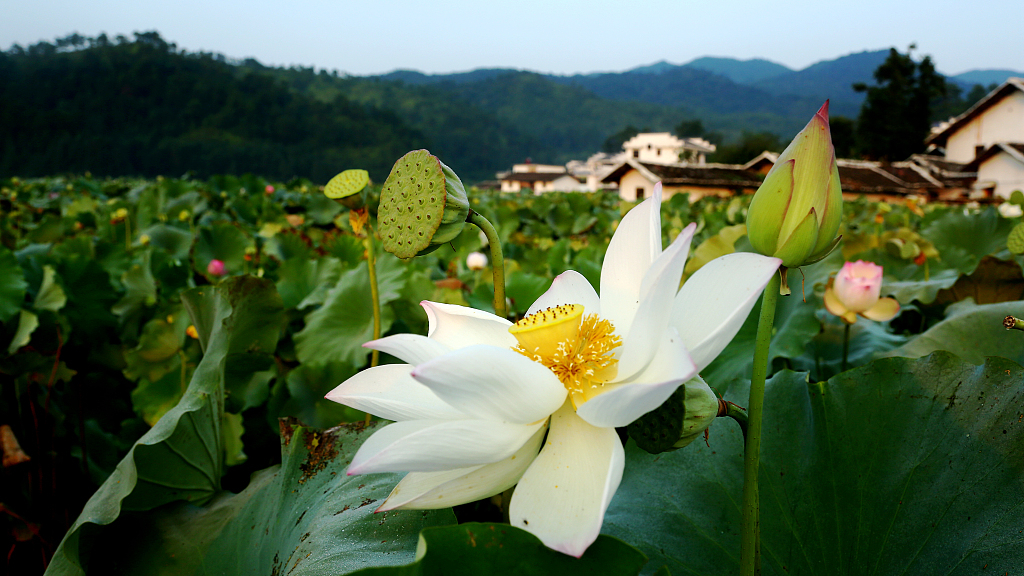
The white lotus pond in Yaoxi Village, Guangchang County, Fushun City, Jiangxi Province. /VCG Photo
Almost all parts of the lotus plant can be used in Chinese cuisine. The sweet paste in mooncakes is made of lotus seeds.
The eastern province of Jiangxi is the hometown of white lotus in China. The largest area of white lotus plants is in Guangchang County, which has a history of more than 1,300 years. The county has the largest lotus pond in the world as certified by Guinness World Records.
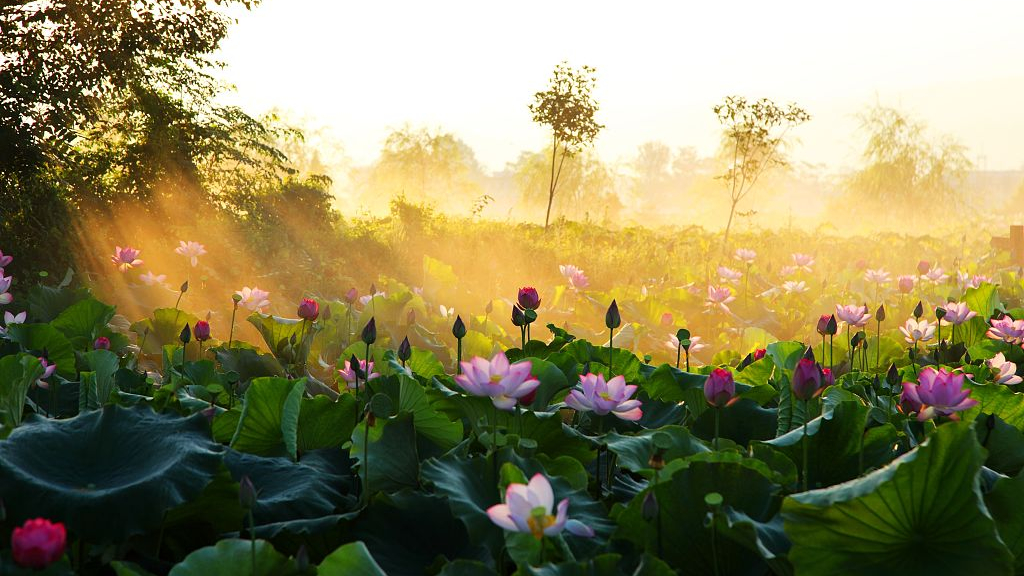
Lotus flowers in Fuzhou, Jiangxi Province. /VCG Photo
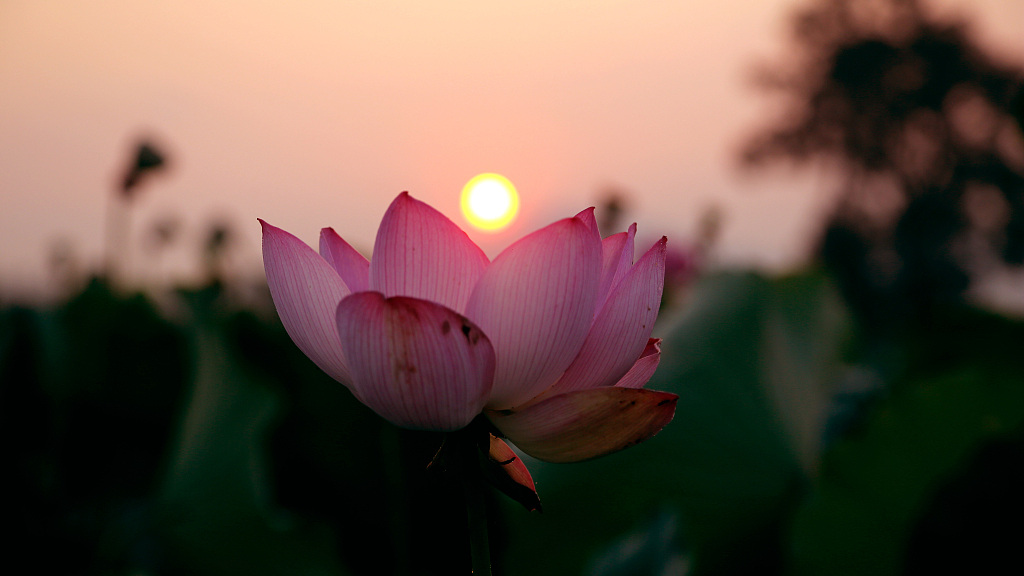
Lotus flowers in Yaoxi Village, Guangchang County, Fushun City, Jiangxi Province. /VCG Photo
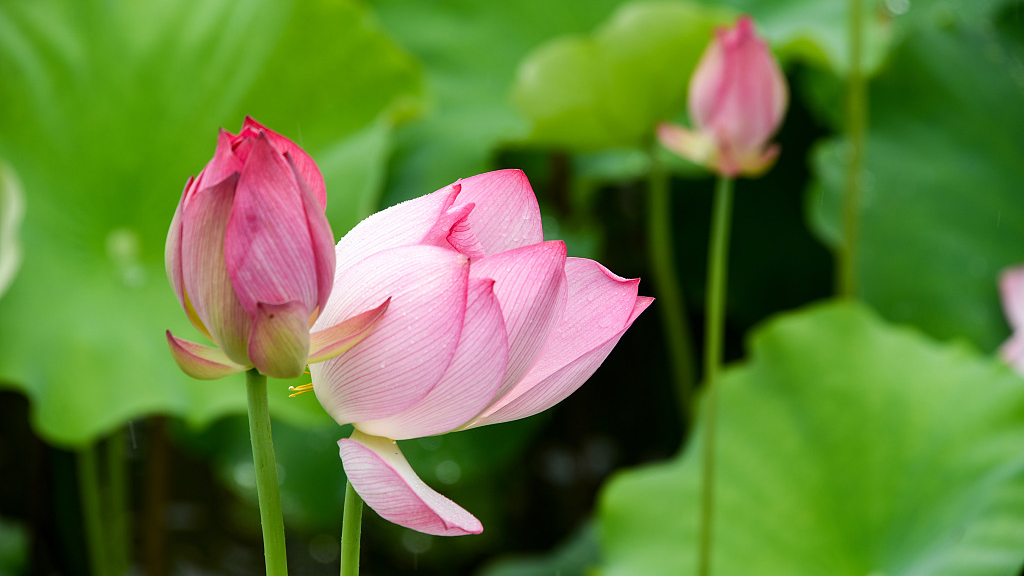
Lotus flowers in Yaoxi Village, Guangchang County, Fushun City, Jiangxi Province. /VCG Photo
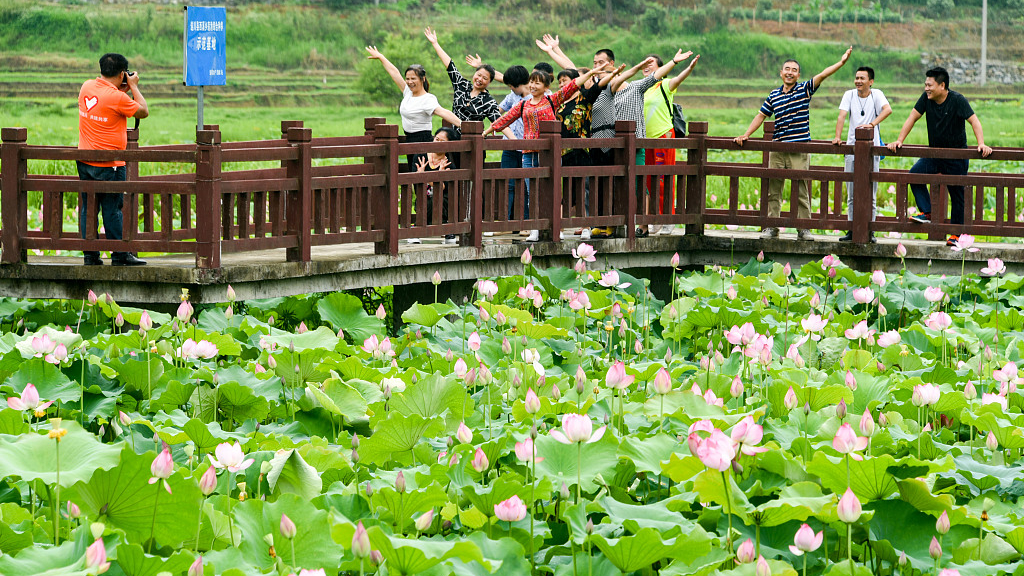
Tourists pose for a photo among lotus plants in Suichuan County, Jiangxi Province. VCG Photo
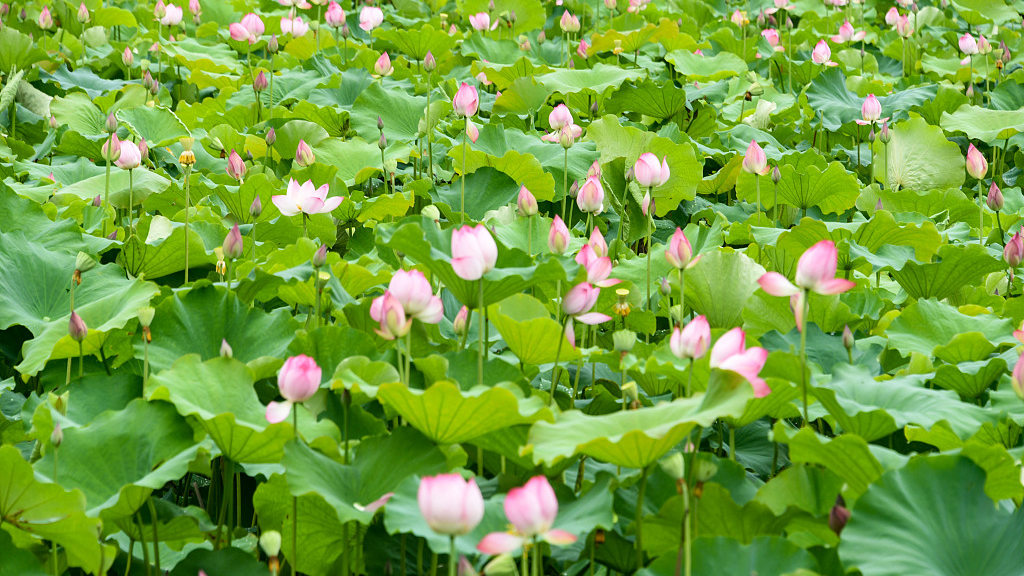
Lotus flowers in Fuzhou, Jiangxi Province. /VCG Photo
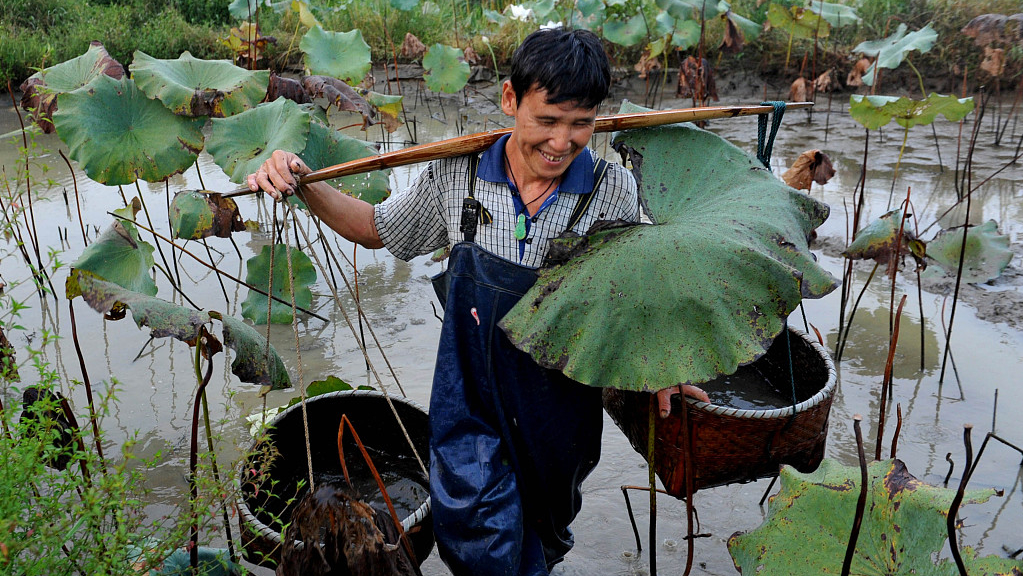
Lotus farmers can also catch fish from the pond. /VCG Photo
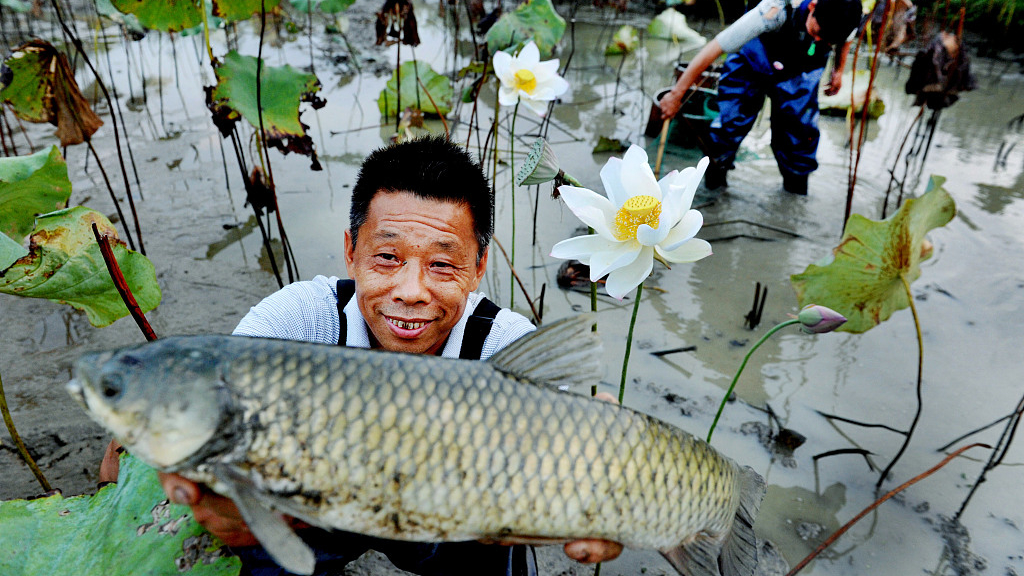
Lotus farmers can also catch fish from the pond. /VCG Photo
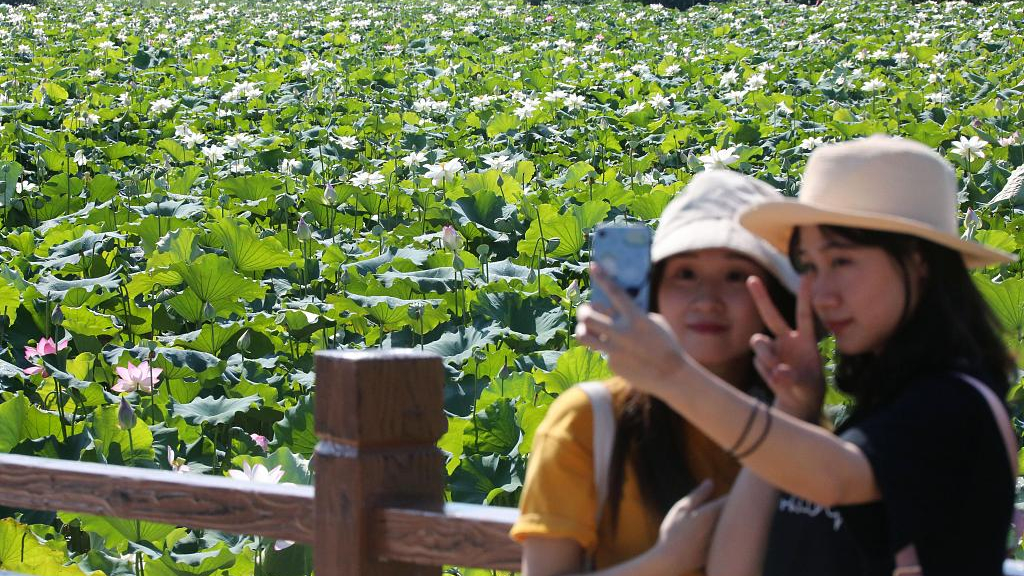
Tourists take a selfie against a background of lotus plants in Yiqian ancient town, Jiangxi Province. VCG Photo
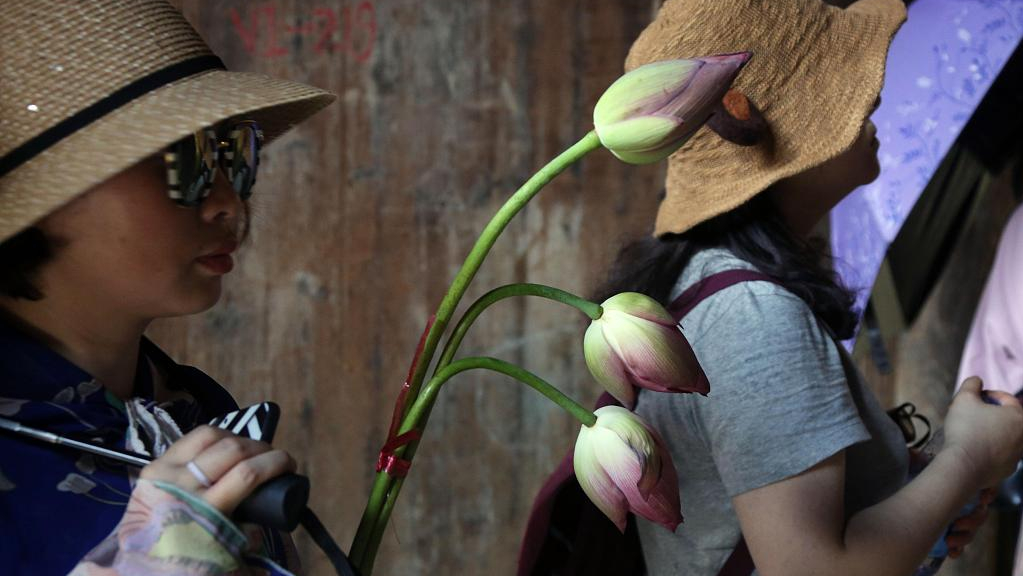
Tourists visit a lotus pond in Yiqian ancient town, Jiangxi Province. VCG Photo
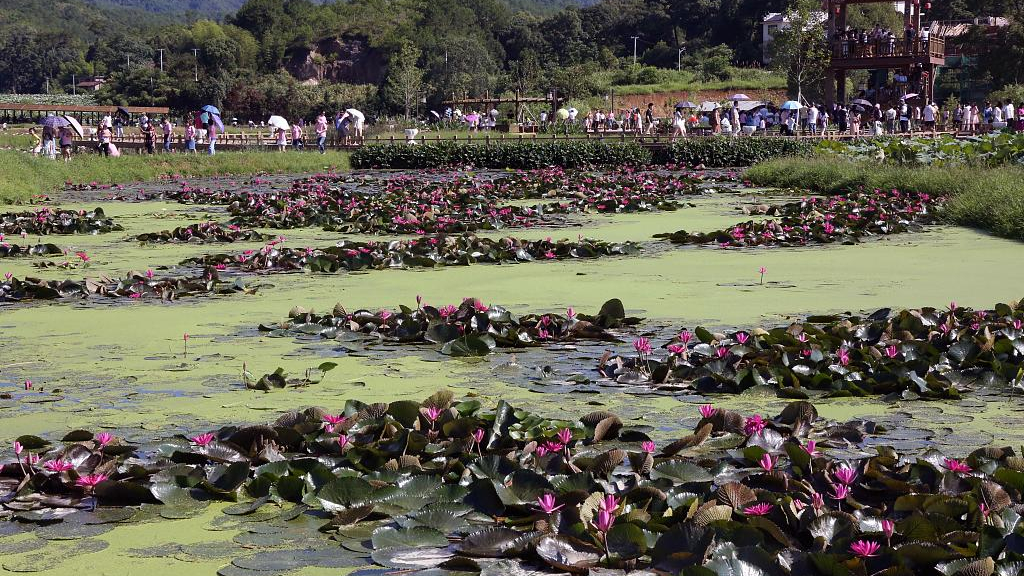
The largest lotus pond is located in Yaoxi Village, Guangchang County, Fushun City, Jiangxi Province. /VCG Photo
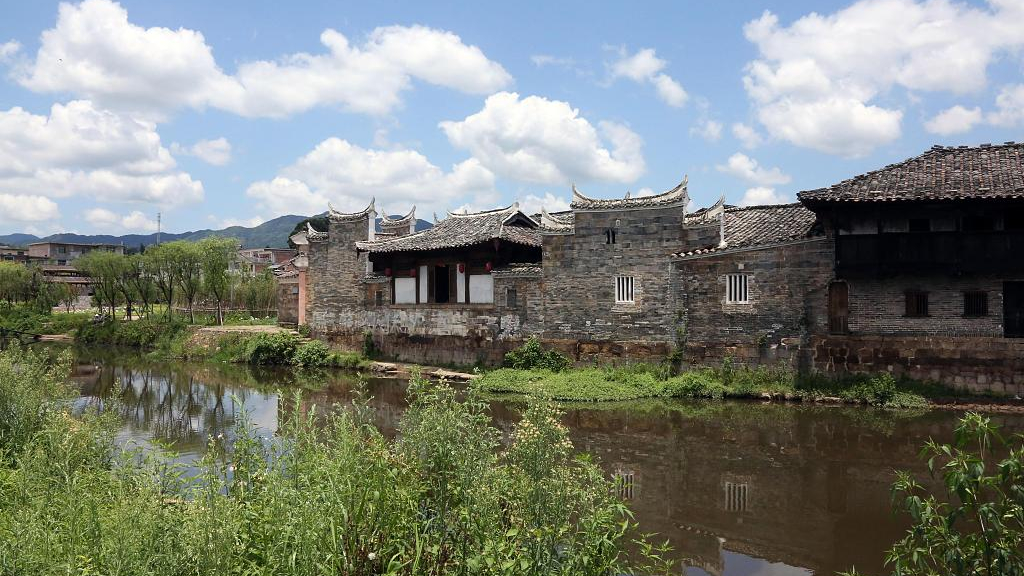
The largest lotus pond is located in Yaoxi Village, Guangchang County, Fushun City, Jiangxi Province. /VCG Photo
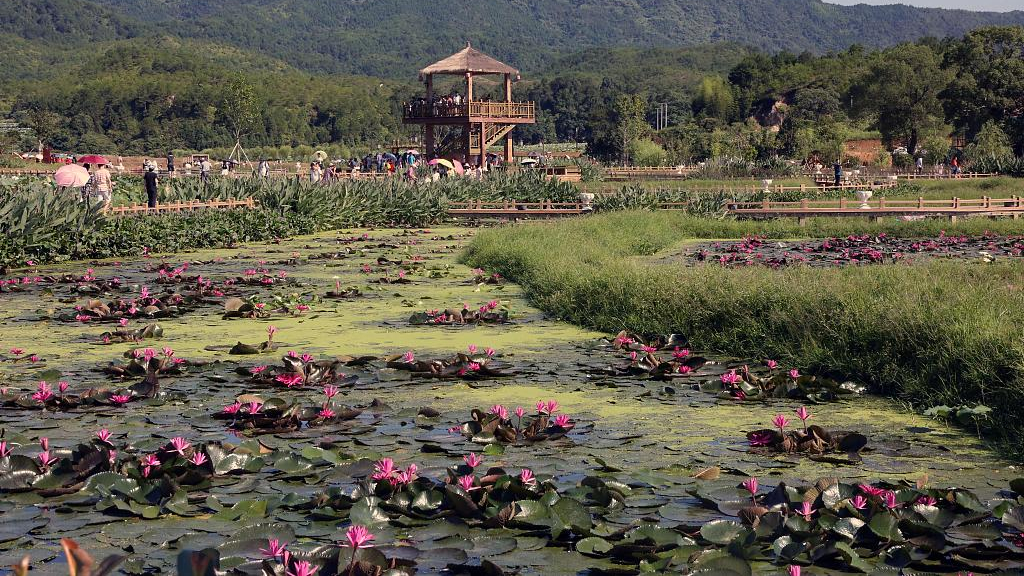
The largest lotus pond is located in Yaoxi Village, Guangchang County, Fushun City, Jiangxi Province. /VCG Photo
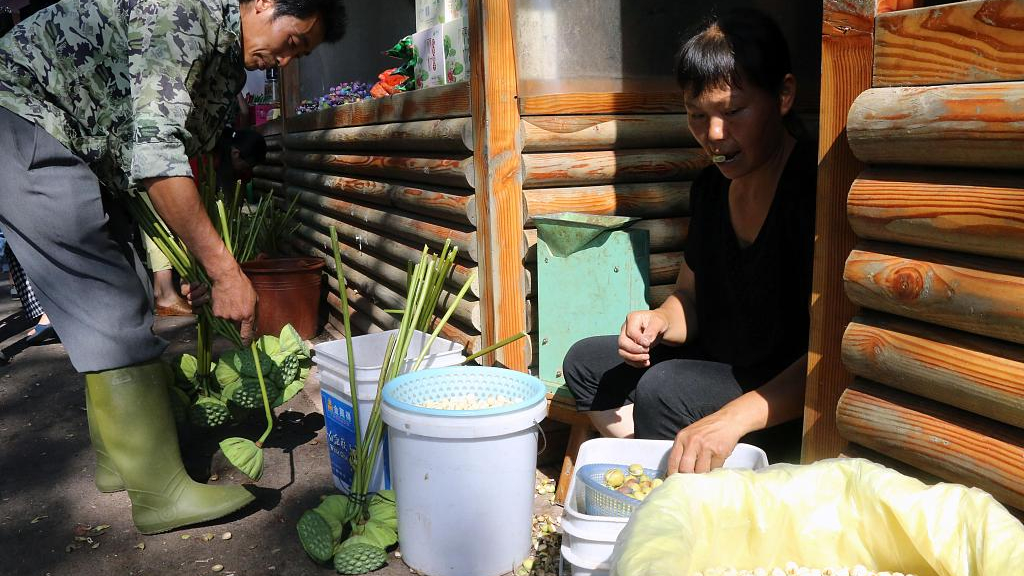
Farmers take the lotus seeds out of the plant in Fuzhou, Jiangxi Province. /VCG Photo
China's Flora Tour
From the wetlands along the coast to the dense rain forests hidden in the southwest of China, all boast an array of plant species. In this series, we will go on a tour to learn about some of the most iconic flora in different provinces and see how they live in harmony with the local climate and topography.
(Cover image from VCG, designed by CGTN's Yu Peng)
(If you want to contribute and have specific expertise, please contact us at nature@cgtn.com.)

Copyright © 2018 CGTN. Beijing ICP prepared NO.16065310-3
Copyright © 2018 CGTN. Beijing ICP prepared NO.16065310-3